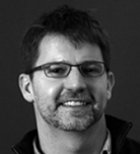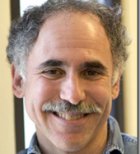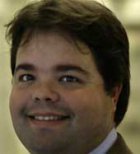EUGENE, Ore. -- (March 30, 2011) -- What's a genome? What can your genome reveal about yourself and your family, and what can genetic knowledge tell us about humanity?
 |
 |
 |
These questions, along with the potential ethical and moral implications of such knowledge, will be covered in a three-part lecture series, "The Individual in the Genomic Era," that begins Tuesday, April 5, at the University of Oregon.
The lectures -- organized by the Graduate Evolutionary Biology and Ecology Students, a graduate student organization in the Center for Ecology and Evolutionary Biology -- launch a new biennial public lecture series designed to address cutting-edge issues related to biotechnological advances.
A genome is the entire DNA sequence of an organism. The information-carrying molecules in all living things, DNA is composed of an ordered set of only four chemicals, called bases, represented by the letters A, T, C, and G. Their specific order, or sequence, is the blueprint for each cell. There are more than 3 million bases in the human genome.
"The implications of having total genetic knowledge has yet to be completely understood by society," says William Cresko, the first speaker and professor of biology at the UO. "Realizing the promise of the genomic era will require an integration of the sciences and humanities in academics along with public policy and politics in our larger society."
"The Individual in the Genomic Era" seeks to explore that promise with the public, stimulate interest in the frontier of genome science and provide critical-thinking tools.
The talks, below, are open to the public. Admission is free. All three talks will begin at 7:00 p.m.
• Tuesday, April 5: Cresko, "The Genomics Revolution," Lillis Business Complex, Lillis Hall, Room 282, 955 E. 13th Ave. Cresko studies genetic variations in organisms, including environmental influences. He also is par of a project with UO biology colleague Hui Zong to identify genetic changes that occur from the formation of a single mutation to full-fledged cancer.
• Tuesday, May 3: Lee Silver, professor of molecular biology at Princeton University, "Ethics and the Genome," 150 Columbia Hall, 1215 E. 13th Ave. Author of the book "Eden," Silver's research focuses on social, political and ethical issues raised by human stem cell research, cloning, advanced reproductive technologies, genetic testing, genetic selection and genetic engineering.
• Monday, May 23: Carlos Bustamante, professor of genetics at Stanford University, "Genome-wide Associations," 150 Columbia Hall. Bustamante, a 2010 MacArthur Fellow, focuses on understanding the evolution and interactions of population genetics in humans, dogs and even plants and pathogens to address fundamental questions in biology, anthropology and medicine.
"This series is really extraordinary in that it has been completely conceived and organized by students within the biology department," says Patrick Phillips, who heads the department. "It is only natural that we should look to them to identify the most important issues on the scientific horizon, and they have totally nailed this one on the head."
Support for lecture series is being provided by the Associated Students of the University of Oregon, College of Arts and Sciences, Center for Ecology and Evolutionary Biology and Oregon Humanities Center's Endowment for Public Outreach in the Arts, Sciences and Humanities.
Media Contact: Jim Barlow, director of science and research communications, 541-346-3481, jebarlow@uoregon.edu
Sources: Bryn Gaertner, lead organizer, graduate student in biology, 541-346-0519, bgaertne@uoregon.edu; Paul Cziko, president, Graduate Evolutionary Biology and Ecology Students, (cell) 217-819-7976, pcziko@uoregon.edu